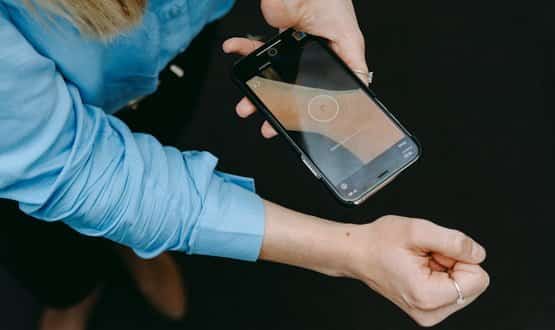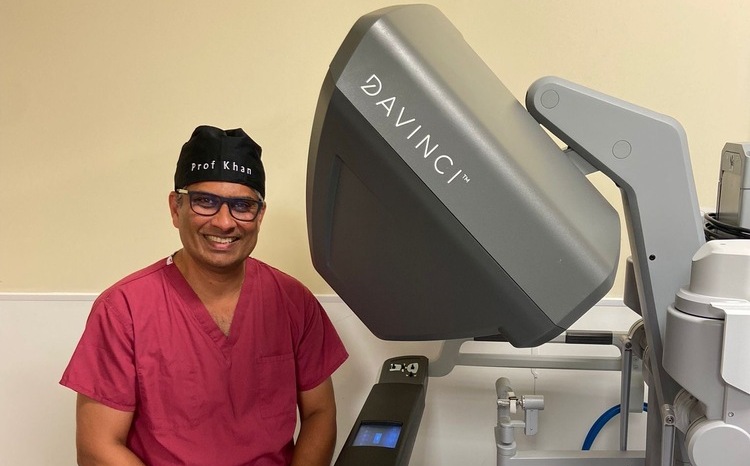Beyond skin deep: using machine learning to prevent 250,000 cancer deaths
- 8 October 2019

SkinVision is on a mission to save 250,000 lives in the next decade through early detection of skin cancer using machine learning. Digital Health’s Owen Hughes caught up with SkinVision CEO, Erik de Heus, at the Intelligent Health conference in Basel last month to find out more.
A key facet of preventative health initiatives is mobilising health around individuals in a way that allows them to become more proactive in their wellbeing.
Giving patients the power to do this using technology they already possess can therefore play a huge role in helping people stay aware of their health and acting before an issue turns into something more serious.
SkinVision embraces this idea by turning the smartphone into a tool for the early detection and monitoring of skin cancer.
The app allows users to take a photo of moles and other abnormalities, which are then uploaded to the cloud and run through a machine learning-based network.
SkinVision will then advise users on their risk of skin cancer, with feedback usually given within 30 seconds.
In situations where a photo reveals a high risk of skin cancer, the app acts as a companion for users, offering advice on where to seek treatment and what questions to follow up with healthcare professionals.
“That sounds like a very common thing but it’s not automatically the case,” Erik de Heus, CEO of SkinVision, tells Digital Health News.
“The complexity in the field of skin cancer is so that recognition of dangerous spots is not an exact science – GPs don’t see so many cases, so they don’t have a high degree of accuracy.
“Many people have no clue what to look for and for many people, finding out they have skin cancer is just a coincidence.”
SkinVision’s machine learning network is trained on data collected by some 1.5 million app users in addition to some 3.5 million photos of skin abnormalities.
In addition to its team of 30, SkinVision utilises the expertise of 10 dermatologists based around the world, who will assess images uploaded by users to help identify instances of skin cancer.
The company has identified some 6,000 skin cancer cases in the UK since launching in the country in 2016, de Heus says.
“We feel we are at the level of a specialised dermatologist,” he adds.
“The combination of our servers and GPs and dermatologists creates a superior outcome for the health system.”
Crucially, SkinVision doesn’t pitch its machine learning smarts against the expertise of seasoned healthcare professionals.
Instead, the company positions itself as a complementary element; a support tool to help inform diagnoses and reduce unnecessary referrals of patients to dermatologists.
Helping dermatologists see who they really need to see in turn provides relief to the overall healthcare system.
“We’re helping customers get to the doctors, and we’re helping GPs to get second opinion,” de Heus explains.
In situations where a patient requires a physical intervention, SkinVision will follow up with the user after three to four months to ensure the correct treatment was offered.
It will also push for a second diagnosis if a user identified as having a high-risk skin abnormality by SkinVision is not referred to a specialist by their GP.
“Our own team of dermatologists will look at customer’s photos, so when customers come back with a different diagnosis, we can put together a fairly accurate assessment,” says de Heus.
A growing problem
Between two and three million non-melanoma skin cancers and 132,000 melanoma skin cancers are diagnosed worldwide each year, with skin cancer accounting for one in three of all cancers diagnosed.
Fortunately, around 95% of skin cancers can be successfully treated if caught at an early stage.
“Our mission is to save 250,000 lives in next decade,” de Heus says.
“That accounts for about 50% of late stage melanoma patients. We are focusing on this as the most dangerous and urgent matter.”
SkinVision is a part of the NHS Innovation Accelerator in England and in September 2019, the company was inducted into the Digital.Health London accelerator programme.
Through this, de Heus say he wants SkinVision to become “a trusted source of support for the British population,” as well as a means of compensating for the current shortage of dermatologists in the United Kindgom.
“Our mission is really to support the end users and individuals who want to keep their skin healthy,” he adds.
“The best approach is to make them knowledgeable of their own skin and make sure they are only in the healthcare system only when they need to be.
“We can improve the criteria and speed of access to dermatologists and critical care – it’s quite an ambitious goal but we are looking at this from a holistic perspective.”
Finding a foothold
SkinVision ultimately hopes to see itself embedded within the NHS – no easy task, given the NHS’s typically closed-off attitude towards start-ups and innovative young SMEs.
As such, and because its technology allows for integration at different points in the care path, the company is working to better understand the opportunities provided by working with the NHS.
“There are some elements we want to understand better,” says de Heus.
“Within these NHS entities we find it’s not easy to find a common decision-making body.
“What we really want is to encourage people to take part in their health without becoming ill.
“The system can never compensate for someone who is not willing to take control of their health.
“We feel that our technology can make them more knowledgeable.”





